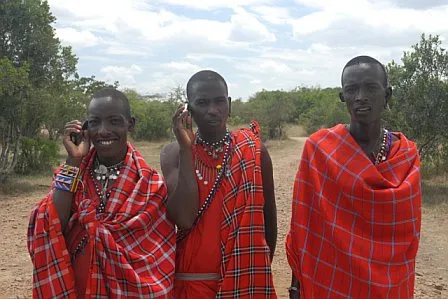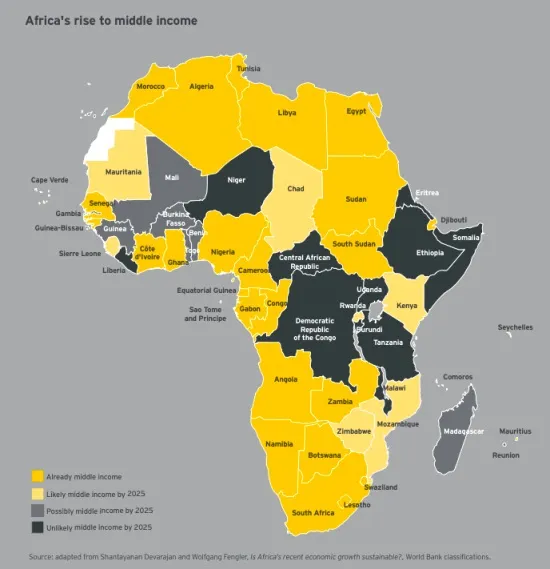This time for Africa! - Learning from TechCamp Kenya
Quick, tell me what first comes to mind when I say … Africa.
Let me guess: Football players? Sun city? Masai mara? Kenyan marathoners? Vuvuzela?
Or this: HIV/AIDS epidemics? Nasty dictators? Widespread malnutrition?
We paint a picture based on fragments of information we know. These help shape how we feel about a place even without visiting it. Once we build a mental model about a place, every piece of info fits into what we perceive about it; most of us discard pieces of information that jar.
My perception of Africa was what I listed as questions. It is a continent still grappling with its identity and its place in world politics. Other than tourism, I didn’t know why I would be interested in Africa.
I saw a different side to Africa last week.
This also made me realize how limited our popular view of Africa really is. The biggest drawback: we might just be missing out on interesting business opportunities.
Learning about Africa through TechCamp Kenya

Earlier this year, I had been part of TechCamp at Mumbai where I worked with NGOs to highlight technology tools that could help them in their fund-raising efforts. For the curious readers, NGOs face very different challenges from the regular bunch of startups raising VC funding. Most of them look for grants/donations and innovative funding means to carry on their good work, not to provide monetary returns for investors. Their problems seem more mundane, but also more rooted - How do you communicate work you do with a larger audience? How do you focus on keeping donations going? How do you use technology when you’re on the field for days, without access to computers? There are often no easy answers.TechCamps are a brainchild of the previous US Secretary of State, Hillary Clinton, under the Civil Society 2.0 initiative. Realizing the power of technology to solve real world problems, TechCamps bring technologists to interact with NGOs, helping them harness the latest in Information and Communication Technology advances to build their digital capacity.
I learnt a lot about the NGO and fundraising world at TechCamp Mumbai. Having worked in technology all my career, my first response to most queries was technical, but I quickly realized that many of the NGOs needed answers that went beyond. Many needed help on how they told their story, how to publicize what they were doing, and thinking of different means of fund raising.
About a month ago, the TechCamp team invited me to facilitate sessions on storytelling and fund raising at the camp they were planning at Nairobi, Kenya. The focus of the TechCamp was NGOs working in the health domain in Africa. Would I be interested?
As part of my earlier job, I had designed products used in various countries in Africa, but had never been there. Here was a chance to learn firsthand about life in one of the countries of Africa. I accepted.
I landed in Nairobi. Over conversations in the first few hours, I was struck by similarities between Kenya and India, past and present: both were under colonial rule (this is Kenya’s 50th year of independence) and boast of multiethnic populations with their own customs; a large percentage of English-speaking youth, hungry for progress, but also high unemployment; a shift from a completely central planning to a more federal structure; strong technology footprints with eager startups, investors and incubators; a huge potential for tourism and related services; and so much more.
TechCamp Kenya ran for two days.
A bunch of us technologists worked with African NGOs and firms in the social sector on implementable solutions. In my sessions, I found many NGOs doing good work in the field, but talked about their impact only for funding proposals. We worked through various elements of storytelling and media habits to maximize their messaging impact. But it also gave me a big chance to observe and absorb.
It’s clear that there’s still a lot of chaos in Kenya. There seem to be a lot many NGOs working in the same field, often duplicating efforts. (Rwanda was a surprise. Moving beyond their past, they seem to have taken many strides in planning economy and efforts for NGOs on the ground.) Many NGOs in Kenya shut down once donations for a project run out. Sustainability is still a huge issue - to alleviate this, we discussed many ideas of how NGOs could be run as businesses, and seek to build cash flows from consulting for companies based on their on-ground knowledge, build ownership amongst recipients by charging for services instead of providing it for free, and alternative sponsorship tactics.
Are there business opportunities we are missing?

However, there seem to be various business opportunities in Africa for Indian companies.Already many Indians in traditional industries do business in Kenya. For instance, some of the largest hotels in Nairobi are owned by businessmen of Indian origin.
In the technology field, there is a huge adoption of mobile phones and data plans in both India and Africa. Both face similar challenges in providing services like healthcare, education and access to information, where internet access and mobiles could play a significant role.
Take for instance the case of ical-q, an m-health startup providing diagnostics solutions on the mobile phones. It uses a smartphone and customized diagnostics strips to test for haemoglobin, blood glucose, HIV, etc. It’s currently being used in Africa, but I see no reason why it would not work in India. Alternately, I see no reason why many of the Indian healthcare solutions would not work in Africa.
Mydoorhandle is another startup that I see solving problems in Africa that we in easily relate to in India. The startup allows you to create handles which are GPS coordinates for your house/work that you can share with anyone across the web.
With the growing number of mobile phone users, voice based solutions like JustDial could be interesting fits into the African market. And, of course, m-commerce solutions like Kenya’s ubiquitous m-pesa could allow millions of Indians to transact using their mobile phones.
Nairobi has seen incubation and accelerator programs like iHub and 88mph take off in a big way to foster innovation, not unlike the activity we are witnessing in India.
My assessment is by no means comprehensive; after all, I was there for just two days. And Africa is as diverse as India. There are also other reports that favor Africa as a market. Ernst & Young's 'Attractiveness Survey: Africa 2013' states that while there are still challenges, Africa’s growth is real and sustainable. Read the full report here.
I’m not saying that all Indian startups should plan their Africa strategy. But I do believe that they should take a good look at what’s happening in Africa, both from business partnership and market entry perspectives. Given how similar many of our challenges are, it may take far less to adapt a local solution for Africa, and vice versa. That may end up being smarter business strategy than going after saturated markets in the US and Europe.
Note: All views are personal. In case you want to learn more about my experiences in Africa, mail me at [email protected] or @shrinathv.
Read more about the fantastic series of TechCamps by the US Department of State at www.techcampglobal.org







